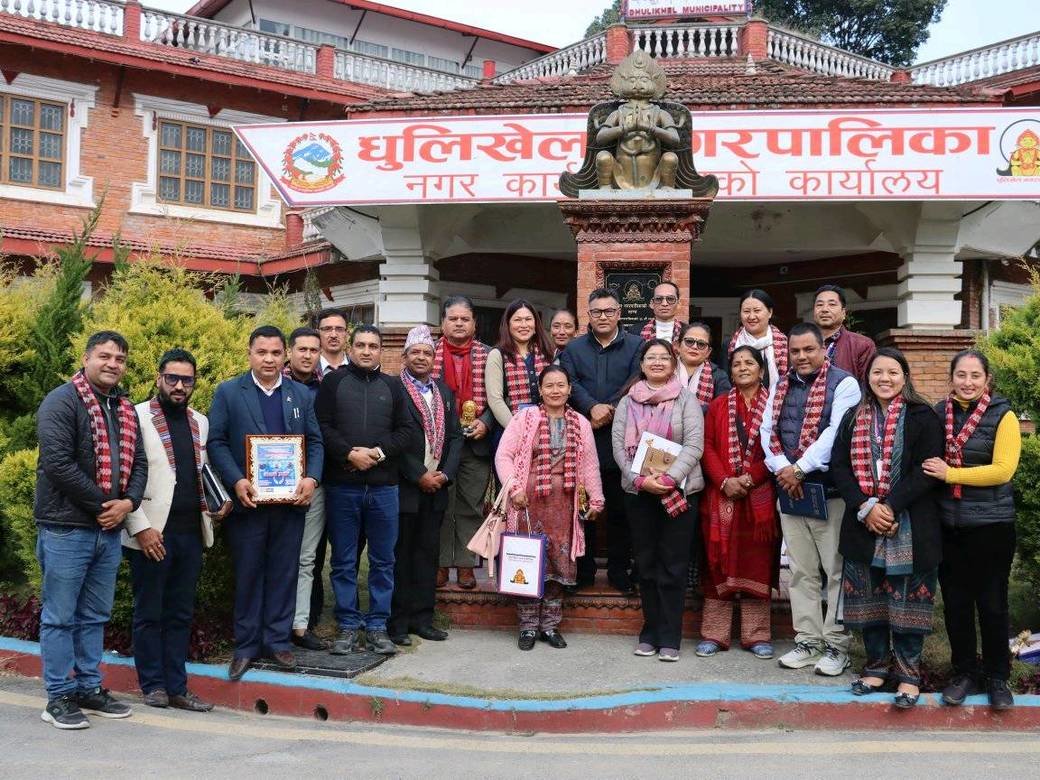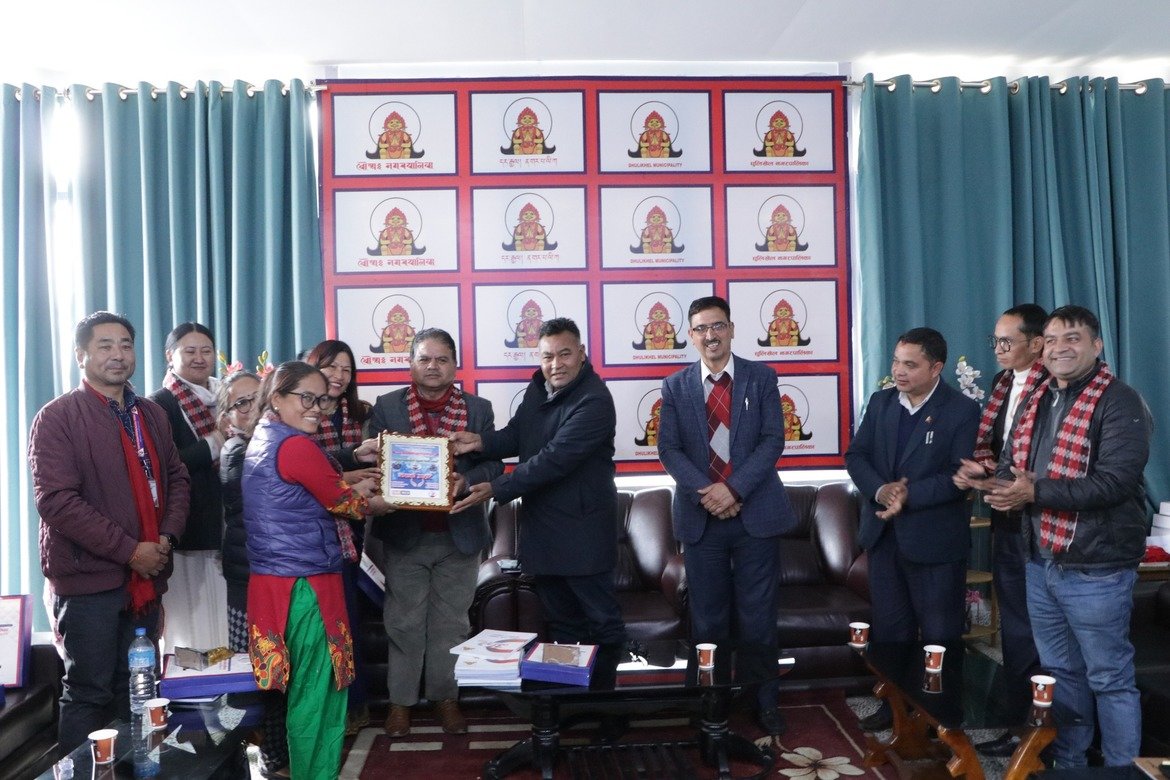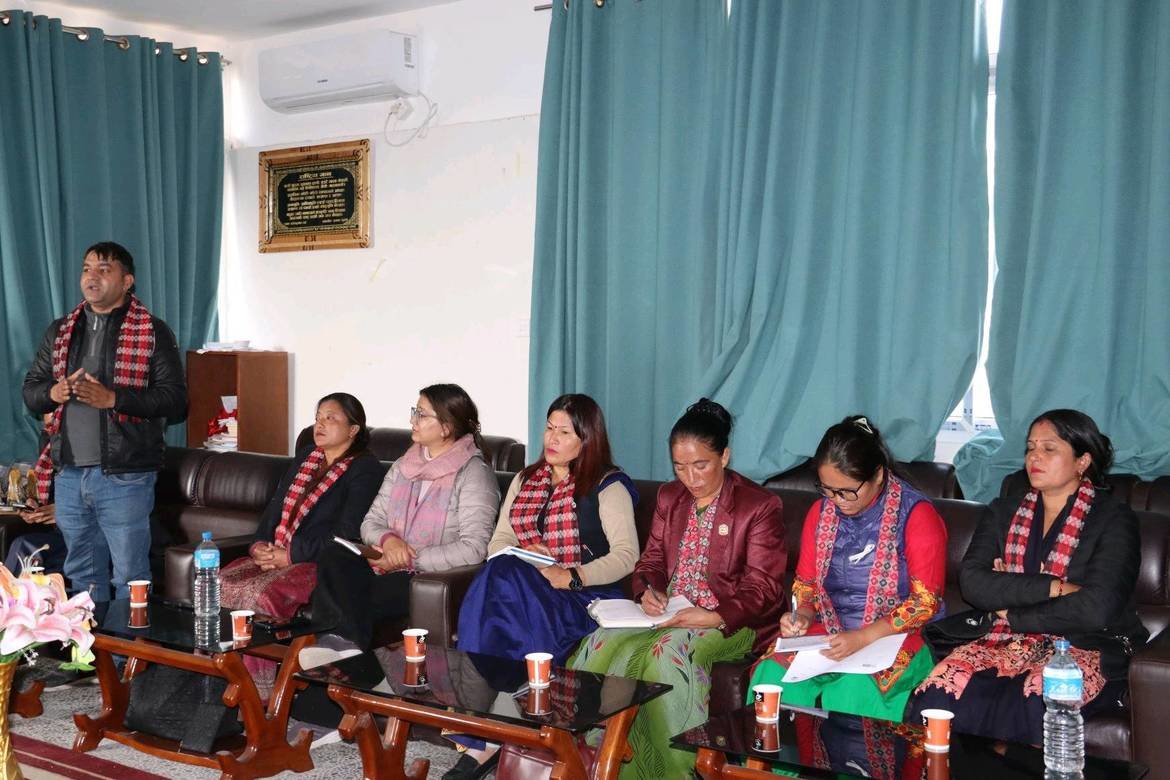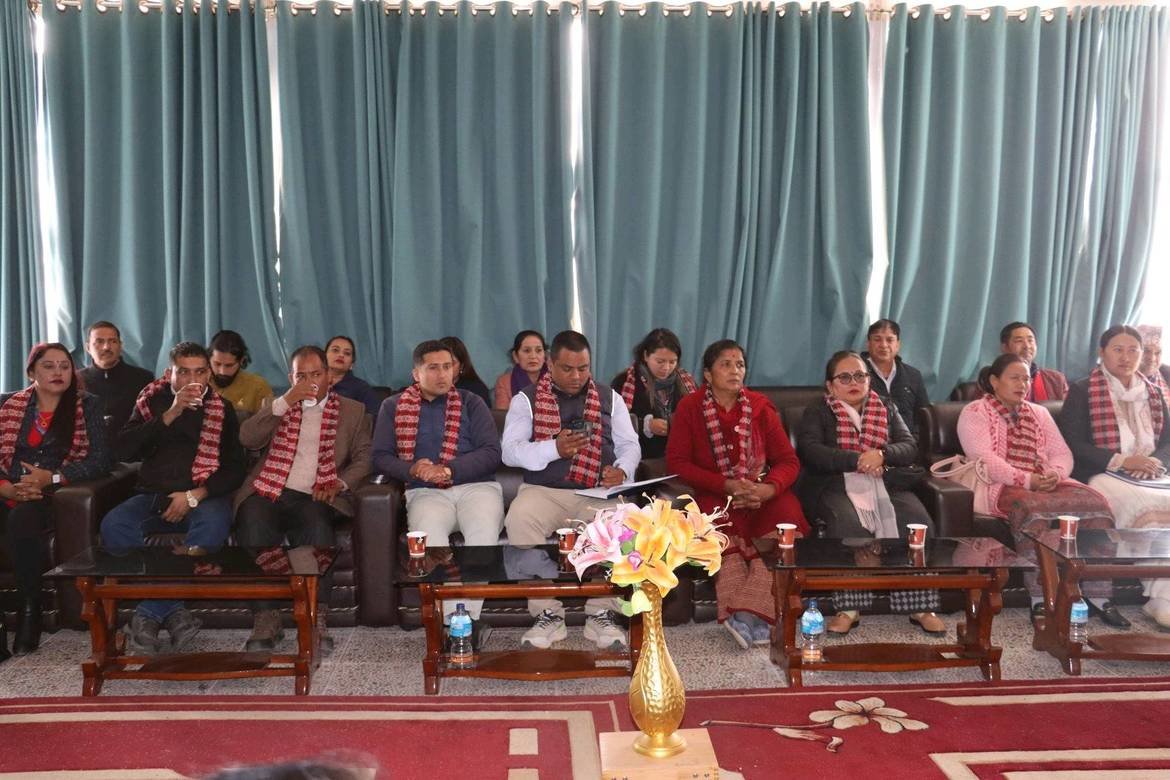Building Healthier Communities: Lessons from Dhulikhel Municipality
Nepal's urban and rural municipalities are increasingly focusing on holistic development, integrating health, environment, and social well-being into their planning. Dhulikhel Municipality is a role model of this integrated approach, recently recognized by WHO as Nepal’s first and Asia’s second “Healthy City.” To inspire similar progress in other municipalities, FAIRMED organized a two-day exposure visit was for Deputy Mayors, Social Development Committee Chiefs, and Health Coordinators from six municipalities in Sindhupalchowk district under the Sindhupalchok Integrated Health Project (SIHP).
The event, hosted by MANK (development partner) and FAIRMED in coordination with Dhulikhel Municipality, aimed to showcase how strategic interventions can drive meaningful outcomes in health, education, sustainability, and governance. The visit served as a platform for knowledge-sharing and collaboration, providing insights into Dhulikhel’s initiatives and igniting dialogue on adapting these practices to other municipalities.
Key Insights: During the visit, participants were introduced to Dhulikhel’s Healthy City model, focusing on its holistic strategies to improve health outcomes. The municipality shared its efforts in increasing healthcare access, promoting equitable services, and collaborating with institutions like Dhulikhel Hospital. Key initiatives included the tuberculosis-free campaign, digital health profiling for households, and a health insurance program covering 96% of the population.
Dhulikhel has demonstrated how aligning local governance with Sustainable Development Goals (SDGs) can bring transformative change. The municipality has already achieved significant milestones, such as poverty alleviation, quality education, access to clean drinking water, and reducing carbon emissions. These accomplishments exemplified the potential of strong political commitment, community engagement, and inter-sectoral collaboration.
The participants also explored innovative approaches to overcoming challenges in less urbanized areas. For instance, Dhulikhel’s “Healthy Home Program” offers a tailored solution for gaupalikas (rural municipalities), addressing the lack of city infrastructure by focusing on household-level interventions.
The exposure visit emphasized the importance of political will, collaboration, and the use of data in implementing sustainable health initiatives. For the visiting municipalities, this was an opportunity to see practical examples of how targeted interventions can improve community health while addressing broader determinants like education, environment, and economic opportunities.
The experience provided a space to renew participants' understanding of the need to integrate health into local governance agendas. They identified several actionable steps, such as prioritizing health in municipal meetings, developing localized health policies, and initiating digital health profiling. Moreover, Dhulikhel Municipality also expressed its readiness to support Sindhupalchowk municipalities in their journey toward healthier communities.
The engagement of Deputy Mayors and other local leaders through this exposure visit emphasizes the critical role of knowledge-sharing and inter-municipal collaboration in achieving holistic development. Dhulikhel’s innovative practices, if adopted in the municipalities in Sindhupalchowk, can make significant strides in creating healthier, more resilient communities. This is integral to FAIRMED as it lays the ground of building a network of municipalities committed to integrated health and sustainable development.



